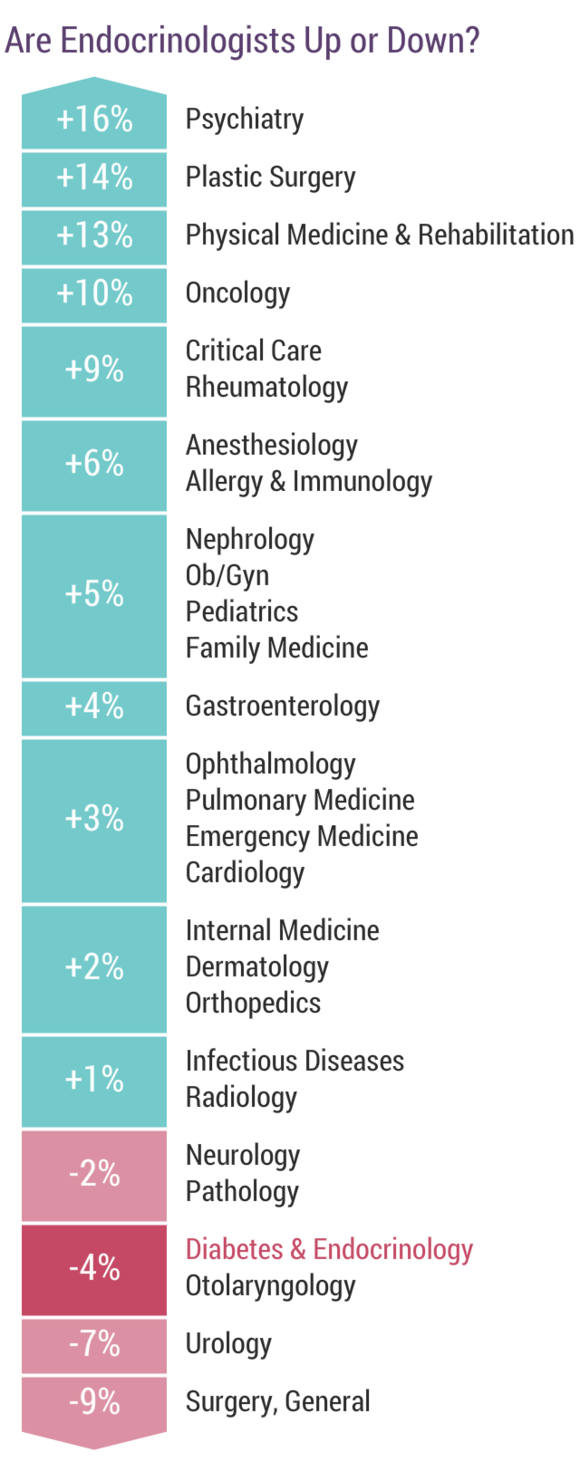Endocrinologist in Georgetown: Advanced Look After Hormonal Wellness
Wiki Article
The Scientific Research Behind Hormonal Agent Policy: Insights From an Endocrinologist
The Science Behind Hormone Guideline: Insights From an Endocrinologist offers a thorough exploration of the complex procedures included in hormonal agent law. Whether you are a medical specialist looking for a much deeper understanding of endocrine function or an individual interested in learning concerning the scientific research behind hormone guideline, this publication is an invaluable source.Hormones and Their Features
Hormones play crucial duties in the policy and control of different physical processes within the body. These chemical messengers are generated by endocrine glands and are released into the bloodstream, where they take a trip to target cells or organs to apply their results. The functions of hormones are varied and encompass almost every element of human physiology.One of the primary features of hormonal agents is to maintain homeostasis, which is the steady inner setting needed for the body to work optimally. Insulin, a hormonal agent generated by the pancreatic, regulates blood glucose degrees by advertising the uptake and storage space of glucose in cells. Another hormonal agent, cortisol, helps the body reply to stress and anxiety by raising blood sugar levels and reducing the immune system.
Hormonal agents additionally play vital roles in development and growth. Growth hormone, created by the pituitary gland, stimulates the growth of tissues and bones, while thyroid hormonal agents control metabolic rate and affect the growth of the nerve system - Texas endocrinology. Additionally, reproductive hormones, such as estrogen and testosterone, are accountable for the development and maintenance of additional sexual characteristics and the policy of the menstrual cycle
The Endocrine System: A Summary
Playing a critical function in the law and coordination of physiological procedures, the endocrine system is an intricate network of glands that create and release hormonal agents right into the blood stream. These glands, including the hypothalamus, pituitary gland, thyroid gland, adrenal glands, pancreas, ovaries, and testes, produce hormones that work as chemical carriers, influencing different physical functions. The endocrine system works in combination with the worried system to control and preserve homeostasis, guaranteeing that the body's interior setting remains stable.It creates hormonal agents that boost or inhibit the launch of hormones from the pituitary gland, which in turn controls the activity of various other endocrine glands. The thyroid gland, situated in the neck, generates hormonal agents that control metabolism and energy balance.

Guideline of Hormonal Agent Production
The policy of hormonal agent manufacturing involves a complex interaction between different glands and responses mechanisms within the endocrine system. Hormonal agents are chemical carriers that play a crucial role in keeping homeostasis and working with various physiological processes in the body. The manufacturing of hormones is tightly managed to make certain the proper functioning of the endocrine system.The hypothalamus, located in the brain, works as a key regulatory look at these guys authority of hormone manufacturing. It releases hormones that inhibit the manufacturing or stimulate of hormones by the pituitary gland, which is typically described as the "master gland" of the endocrine system. The pituitary gland, consequently, creates hormones that act upon different target glands throughout the body, stimulating them to produce and launch certain hormones.
Responses mechanisms likewise play an essential duty in hormonal agent guideline. When hormonal agent degrees rise over or fall below the optimal variety, the body sets off systems to either reduction or increase hormonal agent manufacturing, specifically, to recover balance.
Comments Loops in Hormonal Agent Guideline
Feedback loopholes play an important duty in the guideline of hormonal agent manufacturing. These loopholes include a collection of communications between the endocrine glands, hormones, and target body organs to maintain look at this site homeostasis in the body. There are 2 kinds of comments loopholes: negative responses and favorable responses.Negative comments is the most common kind of feedback loop in hormonal agent law. It works by noticing the levels of a hormone in the blood and adjusting hormone production appropriately. When hormonal agent levels increase over a specific threshold, the hypothalamus in the brain signifies the pituitary gland to lower hormonal agent production. This, consequently, reduces the excitement of the target organ, bring about a decrease in hormonal agent secretion. On the other hand, when hormone levels drop listed below the threshold, the hypothalamus promotes the pituitary gland to enhance hormonal agent production, bring back balance.
Positive feedback loopholes, on the various other hand, magnify hormonal agent manufacturing. This occurs when a hormone promotes the launch of even more of the same hormonal agent, bring about a fast increase in its levels. However, favorable responses loopholes are much less typical in hormone law and are usually associated with particular physiological procedures, such as giving birth and lactation.
Factors Influencing Hormonal Agent Equilibrium
Variables affecting hormonal agent equilibrium consist of nutritional choices, lifestyle habits, and ecological exposures. These elements can have a considerable effect on the delicate equilibrium of hormonal agents in the body, impacting different physiological procedures and total health and wellness.Nutritional selections play an essential function in hormonal agent law. Eating a well balanced diet that includes a variety of nutrients is necessary for maintaining hormonal agent equilibrium. Specific nutrients, such as omega-3 fats, vitamins, and minerals, are especially important for ideal hormone function. On the various other hand, a diet high in processed foods, refined sugars, and undesirable fats can disrupt hormone degrees and cause discrepancies.
Ample rest is important for hormone manufacturing and guideline, as disrupted rest patterns can lead to discrepancies. Furthermore, chronic stress and anxiety can dysregulate the hypothalamic-pituitary-adrenal (HPA) axis, a key player website link in hormonal agent guideline, leading to a cascade of hormonal inequalities.

Verdict
In verdict, comprehending the science behind hormone guideline is important for keeping general health and wellness. Hormonal agents play essential duties in various bodily features, and their production is controlled by complex comments loops.The Scientific Research Behind Hormonal Agent Regulation: Insights From an Endocrinologist provides a comprehensive exploration of the detailed processes involved in hormonal agent law. It generates hormonal agents that stimulate or inhibit the launch of hormonal agents from the pituitary gland, which in turn regulates the activity of various other endocrine glands. It launches hormonal agents that hinder the manufacturing or stimulate of hormones by the pituitary gland, which is typically referred to as the "master gland" of the endocrine system. The pituitary gland, in turn, creates hormones that act on various target glands throughout the body, boosting them to create and launch specific hormonal agents.
When hormone degrees rise above a particular limit, the hypothalamus in the mind indicates the pituitary gland to decrease hormonal agent manufacturing. (endocrinologist in liberty hill)
Report this wiki page